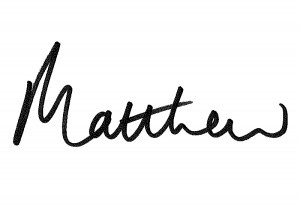Advice Column #6: Writing into the Void
Do you hear it? It's the giant sucking sound...

Dear Bizlet: A friend referred me for a job that I was really well qualified for. I have a masters in the field, ten years of experience at a blue chip employer that’s a direct competitor, and my friend is a VP at the company. Four weeks have gone by and I haven’t gotten an interview. I have been looking at my resume and I think I have know what the problem is. I bought an expensive resume template from a designer last year that uses a font that I think has gone out of fashion. Somebody told me that there is a new font that everybody in my business is now using. Do you think I need to change it? —Hope
Dear Hope: Have you ever been in a professional recording studio? If you’re somebody who loves music, it’s like setting foot in a church for the first time.
A studio is an exquisitely beautiful place filled with expensive electronics. There’s a dazzling array of knobs and dials, and they’re multiplied by endless reflections bouncing mirror-like off of angled glass. One thing is missing. There is no sound. The soundproof environment can be a little maddening, at first, until you get used to being alone with your thoughts.
Writers are warned to prepare themselves for that same feeling. “Writing into the void,” it’s called. Your editorial voice sounds a little louder when you think nobody is listening. Against that silence, even the clicking of the keyboard can sound a bit different. The platform you’re using right now, Substack, is a bit like that beautiful recording studio.
It’s an exquisite tool for both writers and readers, if there are any. For the energy writers put into creating the content you read, it can be a bit startling how still everything seems. Writers have this in common with job seekers. We’re oscillating between the deep involvement of writing and quietly and patiently hoping for a response.
Working on your resume and applying for jobs is a very vulnerable business. When the role seems like an ideal fit and you don’t get any response at all, it’s natural to want to make some meaning out of the quiet. You’re writing into the void. I can relate.
But there is no reason. Hiring managers reject entire queues of applicants, hundreds or even thousands at a time, for the most trivial reasons. A common occurrence is for a few candidates to be selected, they take months to go through an interview process, and then they all get rejected. The hiring manager decides they wants to start over with “fresh” applicants. All of the original applicants will get a form rejection several months after they originally applied. It shouldn’t happen that way but it does.
While in corporate hiring roles, I rejected hundreds of candidates en masse for all kinds of silly reasons. Managing incoming queues is difficult when the volume of incoming candidates is enormous. I rejected big queues for stupid reasons like the presence or absence of keywords like “DAM,” the use of a specific location matching the location of the role (“NEW YORK”), whether their last job title matched the hiring job title (“PRODUCT MANAGER”), and so on.
Hope, even when your friend hand-delivers the resume with a personal endorsement to a hiring manager, a silent rejection doesn’t mean anything. There’s an infinite number of reasons why it might not go your way at this stage. The position got eliminated. They hired another candidate. They have too many other candidates in the process. There are also a huge number of reasons that they could have looked at your resume and rejected you that you cannot learn anything useful from.
Recruiting rejection is a blunt instrument. Candidates cannot learn anything useful from being rejected by an employer 95% of the time. I know that people want to know why they weren’t hired, but for the most part they shouldn’t. At first I was mortified when I learned it was the policy of a big employer not to provide feedback to employees after an interview. Now believe it’s utterly essential. It’s not you, Hope, it’s them.
One last thing: You did the right thing by getting a personal referral to the opportunity. Unscientifically, I’m convinced that most candidates should put most of their effort into networking and applications should be their second priority. Anecdotally, I think most jobs are gotten this way, and I think most good jobs are gotten this way. 100% of my own jobs have been gotten this way.
Once you’ve got a referral, you should mercilessly follow up on them. If referred to a recruiter, follow up every two weeks until forever or asked to stop. There is need to apologize for being persistent. Recruiters understand.
You can say “Hi John. I’m doing my best to stay at the top of your inbox about the Marketing Manager role we discussed in December. I’m sure you’ll let me know when I should stop. Thanks!” If they don’t find that charming, they came from some other planet than every other recruiter I’ve ever known.
I’m sorry that you haven’t heard back about that role, Hope. Rour weeks is too soon to give up. Keep following up. Most importantly, make sure to show the person who made that referral for you that you are super grateful for their support. Let them know that it made a difference having somebody on your side instead of writing into the void
.




